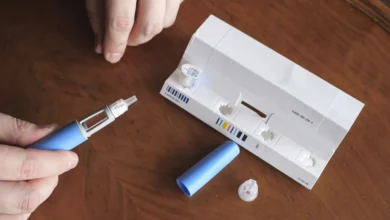
Why and How To Start an Elimination Diet
Although we can’t resist the taste of our favorite foods, we might not feel great after eating them. The bad feeling you get after eating something doesn’t mean you have an allergy, but you might have a food sensitivity. One in ten Americans have a food allergy, but twice that number think they have one.
It can be challenging to determine if your upset stomach, bloating, or brain fog is the result of what you eat. But an elimination diet can help you narrow down what food might be causing the issue.
How do you start an elimination diet? Read on to discover the benefits of elimination diets and the steps to get the most out of them.
Table of Contents
Food Allergies vs. Food Intolerance and Sensitivity
Food can impact your body in several ways, and they mean different things to your health.
Food allergies are severe, sometimes life-threatening, reactions to certain foods. They can cause hives, rashes, or even anaphylaxis. Food allergies often happen fast, so you can pick up on them and avoid those specific foods.
Food intolerance and sensitivity effects can be more subtle and might not occur immediately. Food intolerance is when your body doesn’t break down a type of food, causing GI track issues. Food sensitivities can lead to many health issues that leave you feeling worse for wear.
Benefits of an Elimination Diet
An elimination diet can help you get to the root of health issues you otherwise can’t explain. For example, eating a particular food might cause trouble sleeping or headaches. Elimination diets help you figure out what is triggering these issues.
In an elimination diet, you remove foods from your diet, so your body can heal. Then you can reintroduce foods to narrow down which is the culprit. As a result, you’ll be able to avoid these foods and health issues in the future.
How to Do an Elimination Diet
Before starting an elimination diet, you should talk to your doctor or a dietitian. They can guide you to ensure you still get all the nutrients you need while eliminating foods. They can also help you get treatment if your food sensitivity is caused by a more serious medical issue like celiac disease.
Next, choose foods and eliminate them from your diet. Remember that it will take time for your body to respond and heal from eliminated foods. So, elimination diets can last anywhere from four to eight weeks.
Throughout your diet, keep a food journal of what you eat and feel. Write down anything relevant, like how you slept and your gut health. Anxiety and stress can cause food issues to worsen, so keep notes about your mental health as well.
Then, begin adding foods back into your diet one by one. Be sure to go slowly, or you won’t notice which foods are causing health issues. Take careful notes about how your body reacts and how you feel.
Choosing Foods to Avoid
Knowing that you can’t eat your favorite foods for several weeks can make elimination diets challenging. But a food sensitivity test can help narrow down which foods you need to focus on. As a result, you can make the most out of your diet.
Improve Your Well-being
Although it says it’s a diet, the goal of an elimination diet is not to lose weight. Elimination diets help you discover foods your body is sensitive to and causing health issues. Finding and removing trigger foods from your diet can help you optimize your health.
Do you want to discover more ways to improve your well-being? Check out the health section of our website for more articles like this one.








